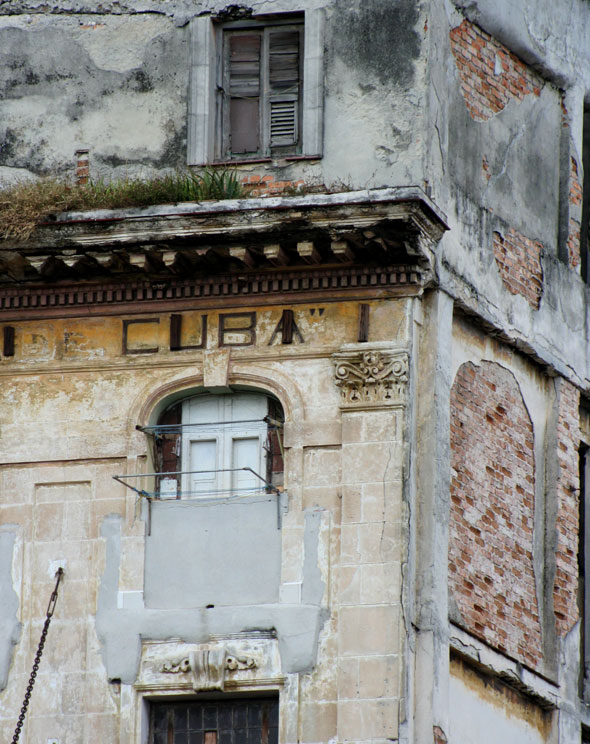
Occasional Photos by… / Orlando Luis Pardo Lazo

English Translations of Cubans Writing From the Island

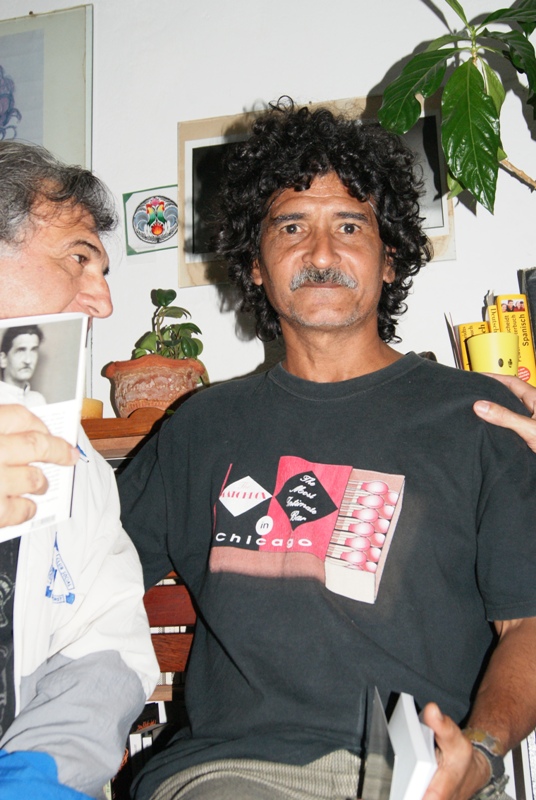
The night of December 3 was full of light and friendship. Yoani Sanchez invited a group of friends of Ernesto Santana to her house to grab from his hands a copy of his novel The Carnival and the Dead, the most recent winner of the Premio de Novelas de Gaveta “Franz Kafka”.
It’s an award for perseverance, an award against censorship, and authors who for various reasons do not receive Cuban’s permission to publish in the land of their birth, have the opportunity each year to send their works to this type of act of generosity and solidarity and see their works published with the highest quality, as you can see from the pictures that accompany this post.
Of course, I have not read the novel and I can not talk about its literary quality, I spent only a couple of hours without being able to put it down and that is already something. Marginality, the impossibility of personal fulfillment, including lack of interest in what many try to call happiness are, in this short novel, the keys to this very long story. Ernesto Santana’s characters are ghosts beaten by the war in Angola and the disruption of national life, so it will be a few hours of distress-pleasure well worth retracing in the dark.
I met Ernesto at a book fair in Pinar del Rio, back in 2005 and some months later he gave me a bunch of poems for the first issue of magazine Bifronte. Thus, we published for the first time in that magazine poetry of a narrator, a kind of Violon d’Ingres, or pastime.
For me, who has been away from the country’s official literary life for years, it was a gratifying moment to know that there is a group of men and women who think of the country, who are rebuilding it piece by piece and putting it in a safe place through their novels and poems. Five years later I run into Ernesto Santana, and, for the first time, others: Amel Hechavarría, Daniel Díaz Mantilla, Ernesto Morales, Orlando Luis Pardo Lazo and several others, a sign that Cuba pulsates in its writers, and how.
December 10 2010
December 10, 2010

To discuss the topic that want to devote this post to, I am forced to tell a bit of history. In 1984, I started to work in the Department of Archaeology of the then Institute of Social Sciences, (ICSO) of the Academy of Sciences, in the National Capitol. In those days, we were a large group whose fundamental mission was scientific research, and we had at our service a very well-stocked library on the second floor, in the room occupied by the Library of Congress in the Republican era, that is, the Social Sciences Library of the Academy of Sciences was the successful heir to a valuable library collection, a treasure of enormous scientific, historical, and cultural value.
In the quiet of the Social Sciences Library I had the opportunity to check out works of classic universal philosophy, encyclopedias, dictionaries, art books, many works of chroniclers and rare literary specimens that were part of an accumulated scientific heritage from the early years of the Republic, exceptionally well-preserved over the years, protected in the safety of their shelves and in the care of specialists.
But it so happened that one sad day the Destructor by Antonomasia laid eyes on the historic Library of Congress. Oh, sacrilege! How could that collection have the arrogance to keep itself intact and to survive his infinite power?! How, when a library like this one had never existed in Birán, could the National Capitol luxuriate in exhibiting, with such great impudence and vanity, the nefarious works of the decadent bourgeois past?! And remembering, with admiration and envy, the burning of the Library at Alexandria and also the ones that the fascist hordes carried out in Nazi Germany, among other pyromaniacs in History, he decided to destroy, once and for all, the Library of Congress. In order to carry it out, he had a brilliant idea, so brilliant that it blinded Dr. Rosa Elena Simeón, the then Minister-President of the Academy of Sciences, who, without hesitation in the least, assumed it with the greatest of enthusiasms: in the area occupied by the Library of Congress and in other areas of the Capitol building she would create the greatest library of science and technology in Latin America; it would be called National Scientific and Technological Library (BNCT). It would have the latest information, and it would extend its services — beyond scientists and specialists — to the entire population.
It was in the last months of 1987 that we saw the old book shelves of the Library of Congress piled up in the Great Hall of Lost Steps, and the books exposed to the voracity of all who would loot the libraries. I cannot ever forget the floor, books tousled everywhere in disarray, thrown unscrupulously by the hordes, who were selecting the rarest to be sold in second hand book stores. We were all encouraged to take whatever books we wanted or could carry. Merchants took away books, so long cared for, in wheelbarrows, full to their very limit. A friend of mine, a reference librarian, had let me know, with tears in her eyes, so that I could also look for a few items that might interest me. Only when I arrived at the enormous room did I understand her grief. I assure you that it was one of the most impressive sights I ever witnessed, a disaster of books scattered, kicked, open, some already destroyed by the rush of the crowds over them: years of knowledge and culture destroyed in a matter of hours in the “most cultured country on Earth”
The dazzling Commander inaugurated the BNCT in July of 1988. It left behind the destruction of the old library, as well as the replica of the Punta del Este Cave, with its aboriginal pictographs perfectly copied with mathematical calculations and artistic patterns, which numerous Cuban and foreign specialists had achieved. Everything was worthy of being sacrificed in the name of the new lunacy. The press did not publish these events, although they orchestrated the fanfare of the inauguration.
The BNCT never had the riches of the Library of Congress. In addition, it never attained the dream of providing the latest scientific information services, not to mention equipment, shelving and furniture, which had nowhere near the quality, comfort and elegance of the old library that was destroyed. It was a short-lived bubble, because ideas based on destruction are doomed to failure. That has been the sign of each of the Orate’s initiative.
It turns out that the Capitol has recently become part of the Heritage under The City Historian’s works of restoration. I found out that, at the end of the day, the BNCT has also fallen into disgrace and it must abandon its current premises. To that end, the most exalted science library in Latin America has been assigned a few small locations where its collection does not fit. Workers have been forced to discard many resources that they have had to pack away, and, evidently, there won’t be space for the BNCT in the Capitol this time around, once it is restored. Thus, the BNCT must also prepare its epitaph. Hereinafter, it will become part of the long list of destruction that the Commander of Perverse Lunacy has left in his passage through life.
Translated by Norma Whiting
December 6, 2010
Several weeks ago, in one of those tedious reflections they read on every newscast, I heard about Wikileaks. I know it seems incredible that a blogger, someone who uses the web as a means of expression, would not already know about this site with all the disclosures. But nothing is strange on this “island of the disconnected,” not even that we learn years later about things that have been the subject of intense discussion in the rest of the world. I remember the first mention of Julian Assange’s site in our official media was accompanied by a certain complicity on the part of the article writers, a hint of laughter anticipating the damage that the publication of these classified documents could cause the U.S. Government. But when the name of Cuba began to appear along with reports about the interference of Venezuela and the testimonies of coercion against their own medical personnel, the enthusiasm of the newspaper Granma turned to annoyance and the initial applause gave way to silence. Not even the Maximum Leader referred to Wikileaks again.
What happened in recent days will significantly change how governments manage information and also the ways through which we citizens get a hold of it. But also — let’s not fool ourselves — those regimes that are based on silence and the lack of transparency, will reinforce the protection of their secrets, or avoid putting them in writing. Meanwhile, the exposure of the cables, memorandums and correspondence between diplomats and departments of state is being noted by authoritarians everywhere, and they are learning not to leave written evidence of their orders to silence, suppress or kill. This lesson has already been practiced for decades, if not, when the day comes that those Cuban archives will be declassified, I will be searching them to see if they record the name of the person who decided to execute the three men who hijacked a ferry in 2003 to emigrate. Where is the paper that confirms the psychological pressure put on the poet Heberto Padilla to push him to a mea culpa that still weighs on the conscience of some? In which drawer, shelf or file do they keep the signature of the person who ordered the sinking of the tugboat 13 de Marzo, that killed the women and children who were washed overboard by the Coast Guard’s water cannon?
There are so many who don’t keep records, who have an unwritten culture of repression and who have paper incinerators that smolder all day; bosses who only need to raise an eyebrow, crook an index finger, whisper into an ear a death sentence, or a battle on an African plain, or a call to insult and assault a group of women dressed in white. If some of them would emerge in a local Wikileaks, they would get the maximum penalties, be made examples of with the strongest punishments, without worrying about whether to fabricate a charge of “rape” or “bovine slaughter.” They know that “seeing is believing” and therefore take care that there is no material containing surprising revelations, that the real framework of absolute power will never be visible.
December 10, 2010
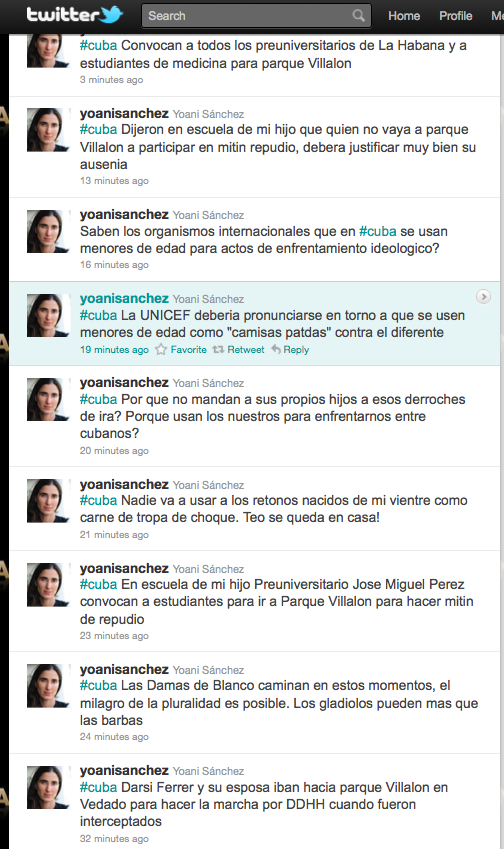 3 minutes ago
3 minutes ago
They are calling all the high school and medical students in Havana to go to Villalon Park.
13 minutes ago
They said in my son’s school that anyone who doesn’t go to the repudiation rally in Villalon Park better have a very good excuse.
16 minutes ago
Do the international organizations know that in Cuba they use minors for ideological confrontations.
19 minutes ago
UNICEF should speak out about using minors as “Brown Shirts” against the dissidence.
20 minutes ago
Why don’t they send their own children to these displays of anger? Why use ours to confront all Cubans?
21 minutes ago
No one is going to use the offspring from my womb as cannon fodder for their shock troops. Teo is staying home!
23 minutes ago
In Jose Miguel Perez High School they are calling on all the students to go to Villalon park for a repudiation rally.
24 minutes ago
The Ladies in White are marching right now, the miracle of possible plurality. The gladioli can do more than the beards.
32 minutes ago
Darsi Ferrer and his wife were going to Villalon Park for a Human Rights march when they were intercepted.
A ringing youth protest took place in Villa Clara, about 180 miles from Havana. Around a thousand young men paid three pesos in national money to see the match between Barça and Real Madrid, in a movie theater beneath the Hotel Santa Clara.
Instead of the transmission of the classic Spanish league, they showed a Cuban documentary. Meanwhile, in a neighboring locale, that could enjoy the match for 5.50 convertible pesos (about $7 U.S.). They started stomping, yelling and booing.
Tempers were getting hot. And in addition to anti-government slogans, there were acts of vandalism, breaking chairs and decoration. Within minutes, scores of cars and dozens of cops arrived. Some 70 arrests were reported, including the manager of the movie theater.
Almost all were high school and college students, perhaps fans of the Real Madrid, who meet in the Parque Vidal, facing the scene of these events. Villa Clara is the most soccer-mad province in Cuba, in particular Zulueta, one of its municipalities.
That happened Monday, November 29. Two days later and about 280 miles away from Santa Clara, in Bayamo, another provincial capital, this time Granma province, the opponent Yoandri Montoya reported the stoppage of the horse-drawn carriages, one of the most popular means of transport in the city.
 The drivers holding licenses agreed to stop in protest of the raise in the monthly tax, from 120 pesos (5 dollars) to 571 pesos (24 dollars). When they increased the fares to the passengers by one or two pesos, they refused to pay double.
The drivers holding licenses agreed to stop in protest of the raise in the monthly tax, from 120 pesos (5 dollars) to 571 pesos (24 dollars). When they increased the fares to the passengers by one or two pesos, they refused to pay double.
Despite pressure on the part of the Party authorities, the police and security, the drivers stood firm in their demand. Certainly, one of Cuba’s most popular songs is called To Bayamo by Carriage.
In Puerto Padre, in Holguin, another eastern province on the island, the protests came from pedicab drivers, who are prohibited from parking in and visiting the sites where the tourists usually are.
According to a source who didn’t want to be identified, in a Santa Maria del Mar nightclub, in a beach area outside of Havana, a discussion about entering the place ended up in a brawl, where there was no shortage of shouts against the government.
Recently, the national television news broadcast a story in which farmers were openly critical because the loss of products due to lack of transport. The situation promises to go further, with rising unrest and discontent among workers and the population in general. But also because of the alarming waste and disorder among leaders and officials.
This is the case with more than 300 temporary homes built on a coastal strip of Corralillo, Villa Clara. They were built using State resources of dubious origin. It was not reported by a foreign correspondent or an independent journalist. No. The one who reported it was the newspaper Granma.
Photos: In the first, from the magazine Ideal, young people at the entrance to the movie theater in Santa Clara where shortly afterward the protest occurred. In the second, taken by Yoandri Montoya, we see the line of carriages stopped in the street in the city of Bayamo, Granma province.
December 6 2010
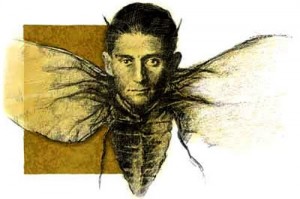 For the third time in a row a writer from our island is honored with the Premio Novelas de Gaveta “Franz Kafka,” awarded by its Czech sponsors to the Carnival and the Dead, by Ernesto Santana, who introduced it in a brief evening ceremony on Friday, December 13, at the apartment of Yoani Sánchez and Reinaldo Escobar, creators of the Cuban Alternative Blogosphere Academy, a civic non-profit entity that disseminates new technologies and citizen journalism.
For the third time in a row a writer from our island is honored with the Premio Novelas de Gaveta “Franz Kafka,” awarded by its Czech sponsors to the Carnival and the Dead, by Ernesto Santana, who introduced it in a brief evening ceremony on Friday, December 13, at the apartment of Yoani Sánchez and Reinaldo Escobar, creators of the Cuban Alternative Blogosphere Academy, a civic non-profit entity that disseminates new technologies and citizen journalism.
The words of praise were delivered by the writer Orlando Luis Pardo Lazo, winner of the 2009 Kafka prize for his story collection Boring Home. A critical appraisal of Pardo Lazo on the literary works of Ernesto Santana will be published in the next issue of the Voices digital magazine and commented on in this Cubanet blog, Island Anchor on the Voces Cubanas portal.
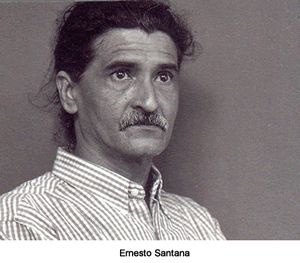 In 2008 the Premio Novelas de Gaveta “Franz Kafka” was awarded to the Habanero Orlando Freyre Santana, author of Blood and Freedom, which addresses, in fiction, the struggles against the Cuban military dictatorship.
In 2008 the Premio Novelas de Gaveta “Franz Kafka” was awarded to the Habanero Orlando Freyre Santana, author of Blood and Freedom, which addresses, in fiction, the struggles against the Cuban military dictatorship.
The essay competition, sponsored initially by the Independent Library Movement and the Czech Republic NGO People in Need, is an option for authors who live on the island and have no chance of publication, such that their texts are sleeping in drawers and computers. It requires of the participants an unpublished and exclusive text.
Ernesto Santana (Puerto Padre, 1958) is an agile prose narrator, whose works oscillate between realism and the poetry of memory. In 2002 he received the National “Alejo Carpentier” Award.
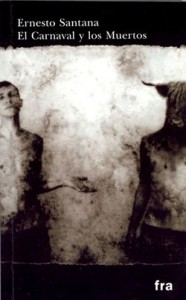 As it is not possible to read and review a 174-page novel in a single weekend, I offer the reader a summary of the review written by Carlos A. Aguilera on The Carnival and the Dead, by Ernesto Santana.
As it is not possible to read and review a 174-page novel in a single weekend, I offer the reader a summary of the review written by Carlos A. Aguilera on The Carnival and the Dead, by Ernesto Santana.
“More than desire, disease, or Africa, the new novel by Ernesto Santana is about the dead. The dead that a determined ideology have produced. His characters, shadow plays acting up against a vacuum, are turned into characters almost in contradiction to themselves. They are skinny, alcoholics, hard; sons of quarrelsome mothers and sleepwalkers of war. The come and go from nowhere, as if life (that place where everything is defeated) had taught them to swim precisely so they would drown. And from this suffocation, which in turn is pure pleasure and extreme ordinariness, The Carnival and the Dead draws its story. The rest we could talk about is their different voices, their geographic countries, their veracity. But none of this is as important as knowing that The Carnival and the Dead is a “dance macabre,” a dance where we find nothing more alive than the dead.”
December 9 2010
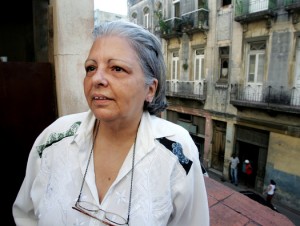 There is no doubt the dissidence on the island is looking for a space. The document: A Future for Cuba. Issued on December 2, it is counter-proposals to the government’s measures — a balanced document that fits this time in Cuba — from a group of ten people, among them the economist Martha Beatriz Roque Cabello and Arnaldo Ramos Lauzurique.
There is no doubt the dissidence on the island is looking for a space. The document: A Future for Cuba. Issued on December 2, it is counter-proposals to the government’s measures — a balanced document that fits this time in Cuba — from a group of ten people, among them the economist Martha Beatriz Roque Cabello and Arnaldo Ramos Lauzurique.
They have put their feet on the ground, their proposals in writing. At times, the Cuban opposition,weighed down by mediocrity, internal squabbles and divided by personal egos and despotic behavior among its leaders, was shipwrecked on the rocks of its own disarray. There was no valid reference, no starting point. Add to that the penetration by the moles of the special services, it is a cause that has become fragmented.
As unfinished business, they still have to try to reach large portions of the population. But they do try. In this December 2010, conditions are ripe for the dissidence to take a 180 degree turn in their political work.
They can count on new tools. Almost all opposition groups have websites where they release their platforms and proposals for the future that is upon us. Important figures and veterans like Oswaldo Paya Sardinas, Elizardo Sanchez and Martha Beatriz, among others, have personal blogs.
There are other elements that promote a greater field of competition. The release of prisoners from the Black Spring of 2003 — although 12 remain behind bars– seems to send the message that the government of the Castro brothers will not go back to filling the jails with prisoners of conscience. At least for now.
Also the dialogue initiated by General Raul Castro with the hierarchy of the Cuban church and the government of Spain after the death of Orlando Zapata and following the government mob violence toward the Ladies in White (which continues against Reina Luisa Tamayo), is a sign that the regime needs political oxygen. And a truce to try to apply their timid economic reforms.
Throughout its history, the Cuban opposition has had brilliant moments. The Varela Project of Payá Sardiñas in 1998, despite some errors of law, was a well-intentioned proposal to try to democratic change.
Previously, the Working Group of the Internal Dissidence issued sensible documents like The Nation Belongs to Everyone, signed by Vladimiro Roca, Martha Beatriz, René Gómez Manzano and Félix Bonne Carcasses in 1997. Also Dr. Oscar Elias Biscet has undertaken specific activities for social justice and human rights.
Then in March 2003, came the hard blow, with the arrests of 75 valuable opponents. To this was added the unveiling of undercover informants in different groups outside government control.
After seven years extolled in sectarian and exclusive position, now the dissent attempts to take the path of concord. They do not ask to be a homogeneous movement. Only that their members agree on the main arguments and points of agreement achieved, to articulate a calm discourse and bring along the citizenry.
These points of agreement exist. It is calculated that 70% of the people on the island are very disgusted with the current economic and political situation. Examples include outbreaks of civil disobedience and public protests of citizens outside the dissent.
Most of the internal opposition has always been in favor of dialogue between all parties. The Castro government is the one who refuses and does not consider them as an important actor. But the current situations, and those that can be foreseen, could rearrange the cards on the table.
Maybe this is the time for the dissidence. In their hands are concrete workable proposals. Martha Beatriz already launched a good signal. They need a final push. To continue fighting in opposition.
December 9, 2010

39 STEPS TO NOWHERELANDIA…!, originally uploaded by orlandoluispardolazo.
Poster by Rolando Pulido, the wizard of the New Oz…
Translator’s note: HAPPY BIRTHDAY ORLANDO!!!!!!!!!
December 10, 2010
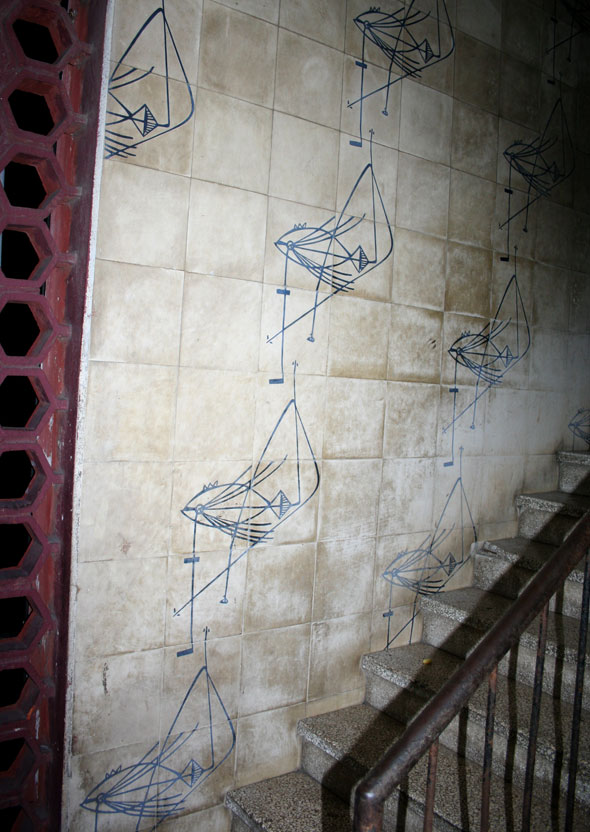
 I am not going to tell anyone the news about Wikileaks, I’m sure my readers know a lot more about it than we do in Cuba; I do want to comment on the repercussions of the Wikileaks revelations in my media. They have even dedicated a Roundtable TV show to it. And it could be that there are still those shocked by what is at stake in the world today and the moral implications of all that’s been uncovered, but save for some angry gestures here and there, this how the world’s intelligence and diplomacy community functions.
I am not going to tell anyone the news about Wikileaks, I’m sure my readers know a lot more about it than we do in Cuba; I do want to comment on the repercussions of the Wikileaks revelations in my media. They have even dedicated a Roundtable TV show to it. And it could be that there are still those shocked by what is at stake in the world today and the moral implications of all that’s been uncovered, but save for some angry gestures here and there, this how the world’s intelligence and diplomacy community functions.
I watched the Roundtable go on about what would results from a massive leak of information in Cuba, and what the “disqualifications” would be for a Caribbean version of the wiki portal. The truth is that in the midst of so many documents, it was rather expected that the Cuban government would “get its hands dirty.” The neighbor should not have too much fun with the hailstorm if their own roof is made of glass.
December 8, 2010
He studied medicine, put on the white coat, entered a hospital to work in a specialty, and blindly believed in the maxims of Hippocrates. At first, imbued with a fascination for cells, muscles and tendons, he barely noticed that his colleagues walked in mended shoes, and that he himself did not earn enough to feed his family. He saw too much in the Artemis hospital: the professional greatness of some and the material disaster of all. One day it was announced with great fanfare that they were going to raise the salaries of all heath care workers. But barely 48 Cuban pesos, the equivalent of 2.00 convertible pesos — or about $1.60 U.S. — were added to his meager monthly salary.
So he and a friend wrote a letter to the minister of his profession, communicating the discontent among physicians at such a ridiculous increase. They managed to collect 300 signatures and delivered it to the Minister of Health, as well as to the Council of State, the seat of power on this Island. The answer came a few weeks later in the form of his expulsion from his specialty. Five months later both letter writers were fired and their university degrees stripped away. Five years have passed since those events, but neither of the two has been able to get work in a clinic as a doctor.
Last week, Jeovany Jiménez Vega — the protagonist and victim of this story — decided to go on a hunger strike in Marti Park in Guanajay, to demand from the Office of the Minister of Public Health, that he and his colleague Dr. Rodolfo Martinez Vigoa, be restored to the practice of medicine. In the same days when the Cuban news featured the air traffic controllers’ strike in Spain and the worker protests in Greece, two men languished very near to us and we heard nothing. Yesterday, fortunately, they resumed eating, because Jeovany has decided to open a blog to tell the world; to opt not for starvation but information. He believes that the letter that was signed by only a few could collect thousands of signatures, if it is made public and presented to all the trained doctors in this country stripped of their rights.
Click here to read the declaration, “Interrupting the Strike.” Here is a brief statement by Jeovany Jiménez Vega. [Both are also appended below.]
The new blog will be ready on Monday and will be announced via Twitter.
December 9, 2010
Statement from Jeovany Jimenez Vega
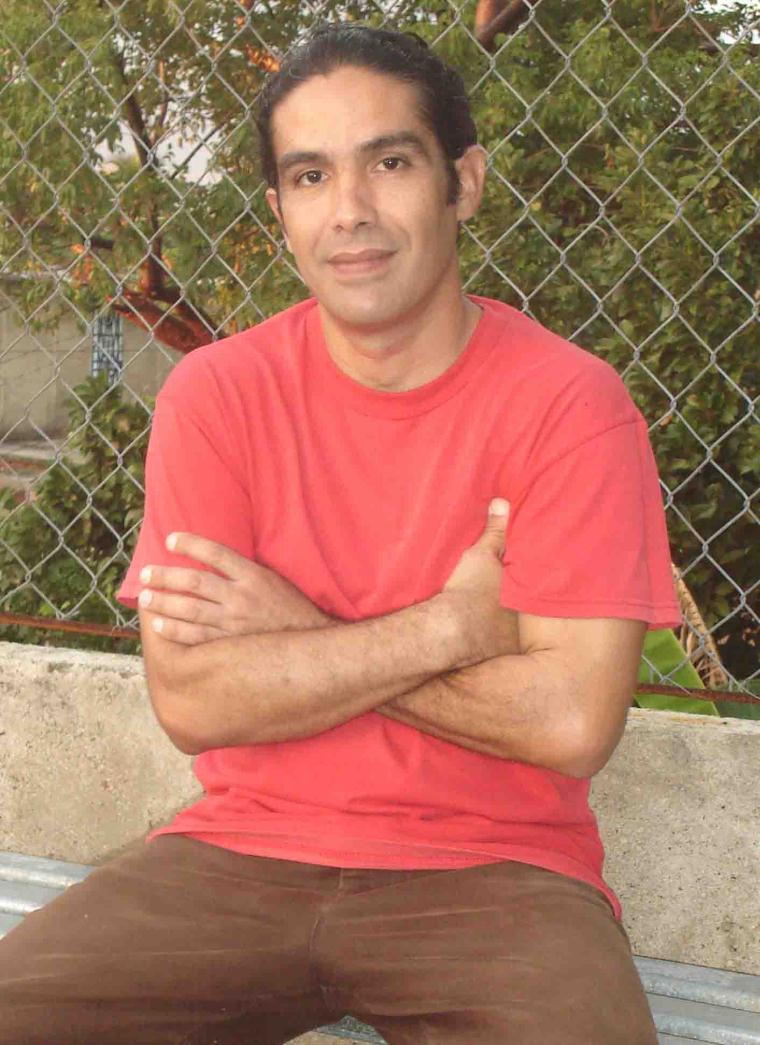 My name is Jeovany Jiménez Vega, friends call me El Chino. For the last four years I’ve lived in Artemisa, a town some 30 miles to the west of Havana, Cuba. I was born on October 10, 1970 in Guanajay, our town nearest to Havana. I went to high school at the José Martí IPUEC of Artemis between 1985 and 1988. That same year I began to study medicine at “Victoria de Girón” Institute of Basic and Preclinical Sciences in Havana and did my clinical course (the third to fifth years), at “Calixto Garcia” Hospital in the Plaza municipality. I graduated in 1994 when the Special Period was at its height, and started work in Guanajay, along with some of my former classmates. I worked in Guanajay for 12 years.
My name is Jeovany Jiménez Vega, friends call me El Chino. For the last four years I’ve lived in Artemisa, a town some 30 miles to the west of Havana, Cuba. I was born on October 10, 1970 in Guanajay, our town nearest to Havana. I went to high school at the José Martí IPUEC of Artemis between 1985 and 1988. That same year I began to study medicine at “Victoria de Girón” Institute of Basic and Preclinical Sciences in Havana and did my clinical course (the third to fifth years), at “Calixto Garcia” Hospital in the Plaza municipality. I graduated in 1994 when the Special Period was at its height, and started work in Guanajay, along with some of my former classmates. I worked in Guanajay for 12 years.
In 2005 the Public Health sector in my country issued a “wage increase” which, like the majority of my colleagues, I thought showed a lack of respect. Together with a friend I sent a letter to the then Minister of Health, Dr. José Ramón Balaguer Cabrera, signed by 300 workers (coincidentally the same number as the courageous, although dying, Spartans who fought at Thermopylae) which set out the common approach.
The story of the brutality that followed you can read in the documents on my site, which tell you what you need to know about the seriousness of the matter and show you how things are in our beautiful Cuba. For the moment, I believe this presentation is sufficient.
But it is also important that you know that I like people plain and sincere, modest but with a lively spirit, amusing and friendly, who smile a lot. I admire people who do not dwell on the size or the nature of the dangers when they embrace a just cause. I am taken by intelligent, creative and sensible people and by the same token detest the cowardly and lazy. If you are of the former stripe, here is my open hand, I am your friend forever.
Declaration of Interruption of the Hunger Strike
Dr. Jeovany Jiménez Vega and I have decided to stop the hunger strike began last Friday, in Marti Park in Guanajay, Havana Province, to demand that the Office of the Ministry of Public Health reinstate into the practice of medicine Dr. Jimenez and his colleague Dr. Rodolfo Martinez Vigoa, disqualified for four years now. On Monday afternoon, a messenger from a high authority who preferred to remain anonymous, and who deserves our credit and respect, asked us to interrupt our endeavor because a new door is opening to our demand. Now we will take the path agreed to with the authorities with the aim of being reinstated to our profession.
Artemis, December 8, 2010
Alfredo Felipe Valdés, spokesman and striker
Jeovany Jiménez Vega

On September 6th when their children start the school year, many Cuban parents won’t have to get up early to go to work. In the summer of 2010, they joined the contingent of the unemployed.
This is the case for José Benítez, 48-years-old, an electrician who is scratching his head thinking how he can look for a fistful of pesos to maintain his wife and three children. They don’t have relatives overseas, they don’t receive dollars nor euros. Neither do they have the money to start up a private business.
“My future is uncertain. To get cash, I’ll probably do private wiring jobs. My wife, who was a housewife, got a temporary contract cleaning in a hospital. I don’t want to think about tomorrow. While the more I analyze, the less solutions I find for our economic and material problems. God squeezes, but doesn’t kill”, says Benítez, while he watches a Brazilian soap opera.
Many families like that of the electrician José know that they have to warm their chairs more than they should in front of the television. In an attempt to recover the paltry economy, the Cuban leaders have foreseen sending a million people to the street.
This time, the State will only pay 60% of their salary. To find a fix to the difficult labor situation, it is expected that the government will free up even a little more on private work.
One can already sell mangos, avocados, and plantains if you have a plantation on your patio. By whatever means, people are already doing it. René Fiallo, 60-years-old, lives in an old residence in the Sevillano neighborhood. Although the authorities would prohibit him from selling so many mangos and avocados from his trees, René pokes fun at the means.
“Fruit sales constitutes a fundamental source of money in our family. Now I’ll do it legally”, assures Fiallo, who from now on must pay a 5% share of his income in tax.
It is far from being the solution to the traumatic food situation in Cuba. A little patch. In the case of the leasing of lands, expectations are more reserved. The independent economist Oscar Espinosa Chepe thinks that the regime should open its hand without fear.
For Chepe, leasing the land for 10 years isn’t a good solution. “If they want people to work those lands at full steam, they should grant a lease of no less than 50 years. Like in China. If you know that you will occupy a piece of land for only 10 years, you won’t be motivated to continue investing in it when you make certain profits”, affirms the economist.
The end of this summer’s vacations marks the start of a stage of uncertainty for many families. And despite the increase in private work, the majority don’t have a nickel to invest in a small enterprise.
On top of that, every day the people have to put up with a ferocious media blast about the critical work situation in the United States and the European Union. The capitalist countries aren’t doing well. That’s certain.
But the Cubans wish that their leaders wouldn’t bury their heads in the ground before their problems. That is what’s happening. Fidel Castro has eyes for nothing other than to read news about a supposed nuclear war. And predict catastrophes.
As if it weren’t enough with those who in their homes have so many unemployed Cubans.
September 7, 2010